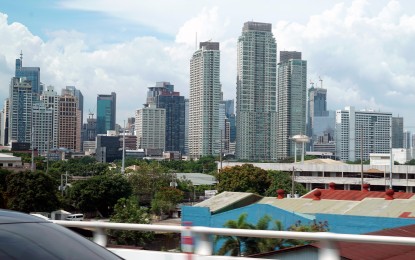
FDI BOOST. Foreign direct investments (FDIs) to the Philippines are expected to get a boost from the ratification of the Regional Comprehensive Economic Partnership (RCEP). A report by HSBC said structural reforms, such as liberalization of the industrial and service sectors, are also needed to make the country more attractive to foreign investors. (PNA file photo)
MANILA – The Philippines is expected to benefit from the ratification of the Regional Comprehensive Economic Partnership (RCEP) initially through higher foreign direct investments (FDIs), a report by banking giant HSBC said.
According to a report by HSBC Global Research dated Feb. 23, despite the more than a year delay in the RCEP ratification by the Senate which approved the measure last Feb. 22, “the RCEP will help the Philippines attract the FDI needed to boost exports and incomes in the years ahead.”
RCEP, a trade deal between the Association of Southeast Asian Nations (ASEAN) and five other major countries namely Australia, mainland China, Japan, New Zealand and South Korea that took effect in January 2022, removes tariffs on 90 percent of goods traded within the bloc.
It also provides a 40 percent “rules of origin”, or allows businesses to qualify for a trade preference so long as stakeholders’ inputs come from within the membership of the block.
The report said while the trade deal came into force in January last year, only 11 of the 15 countries joined immediately.
It said South Korea and Malaysia took part only after two months while Indonesia joined in August 2022.
The report said the Philippines’ entry was late due to issues on agriculture.
Citing reports quoting the Department of Trade and Industry (DTI), the HSBC report said the country "only offered 33 agricultural tariff lines for further liberalization or improvement” which “is only equivalent to 1.9 percent of the total agricultural tariff lines."
Amidst this, the report said the trade deal is expected to boost FDIs to the Philippines but only after the implementation of several structural reforms, such as better implementation of the Ease of Doing Business Law, lower energy prices and a Charter change on foreign ownership.
It said “competitiveness in attracting FDI is a crucial issue in 2023 with 'supply-chain relocation' as the hot topic in ASEAN today.”
“The ratification of RCEP therefore sends a clear message or signal to investors that policymakers in the Philippines will continue to liberalize the industrial and service sectors. This should help attract the much needed capital to create more jobs, improve productivity, and help the economy move up the value-chain,” it added.
The report said ratification of the RCEP “reinforces the current trend in the Philippines of liberalization as it builds upon the recent landmark reforms such as the Public Service Act and the Retail Trade Liberalization Law.”
In terms of exports, it said RCEP is not expected to have immediate impact “but in the long-term” since the trade deal “only removes the tariff rates gradually, from 65 percent of traded goods upon implementation to about 90 percent over a span of 21 years.”
“(Because of the) redundancy of tariff measures, the boost in exports from now until the next few years will likely be minimal,” it added.
Meanwhile, the HSBC report said “it's the long-game that matters.”
“Apart from accumulating capital throughout time, the RCEP will give Philippine exporters access to larger markets to sell their products to and cheaper inputs to help make their products more competitive. Thus, the RCEP should eventually improve the Philippine's prospects in exports, and therefore incomes, in the years ahead,” it said.
Among the sectors that are expected to benefit from the trade deal include the electrical equipment and machinery, tourist services and air transport.
The report said global trade is increasingly moving to the east “and joining the largest trade pact should help the Philippines take advantage of this general trend by making sure that the economy does not fall behind the 8-ball (i.e. the Philippines remains competitive in the region).”
“The RCEP is a pivotal trade deal and when it comes to joining the bloc, the Philippines is better late than never. The benefits may not incur today, but these will definitely come in the years ahead,” it added. (PNA)
